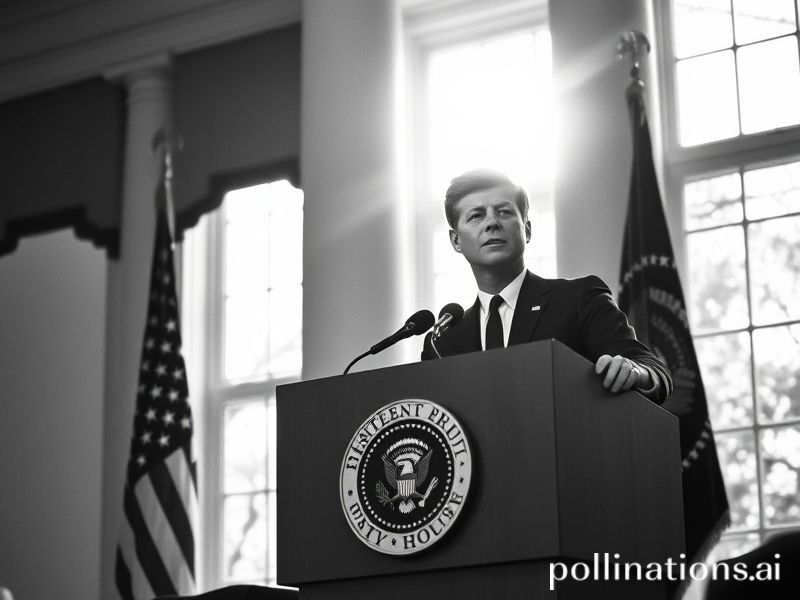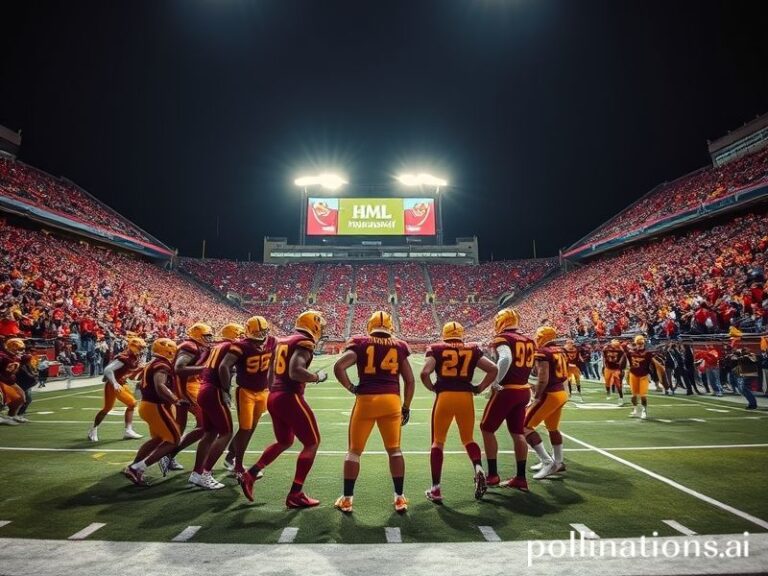From Dallas to the Danube: How JFK’s Assassination Taught the World to Stop Worrying and Love the Conspiracy
A Shot Heard from Dallas to Djibouti: How JFK’s Exit Became the World’s Favorite Morality Play
The global village didn’t wait for fiber-optic cable to synchronize its gasp. On 22 November 1963, the news moved at the speed of short-wave radio, ticker tape, and whispered rumor, and every capital—whether sipping post-prandial grappa in Rome or nibbling dawn samosas in Delhi—registered the same jolt: the most bullet-proof brand of modern democracy had sprung a leak in Dealey Plaza. Camelot, that shiny American export, had been recalled for a catastrophic safety defect. The world leaned in, half-horrified, half-vindicated, because nothing sells abroad like a superpower’s self-inflicted wound.
Europe, still picking shrapnel out of its psyche from two world wars, reacted with the practiced solemnity of a funeral crasher. Le Monde’s front page sighed that “even the New World is not safe from the Old World’s poisons,” which is French for “told you so.” In Bonn, Chancellor Erhard canceled a schnitzel summit and wondered aloud whether the dollar would now suffer a nervous breakdown; the Bundesbank quietly moved its gold another inch closer to Switzerland. London, ever the drama critic, declared the assassination “a very American tragedy—loud, public, and sponsored by at least three competing conspiracies.” The BBC sold the footage to every broadcaster from Lagos to Lima; ratings spiked higher than Marilyn’s skirt over a subway grate.
Behind the Iron Curtain, Pravda wrapped itself in the flag of schadenfreude, blaming “fascist elements nurtured by Wall Street,” which was only slightly less believable than blaming the Cigarette-Smoking Man. Yet Soviet citizens, starved of glamour, secretly mourned the man who had faced down Khrushchev over Cuba and lived—briefly—to tell the tale. In Havana, Fidel reportedly broke out the good rum, toasted “the death of my most charismatic enemy,” then spent the rest of the night chain-smoking and worrying that without Kennedy’s restraint, Operation Mongoose might graduate from exploding cigars to exploding capitals.
The decolonizing world watched with sharper eyes. In Jakarta, Sukarno declared three days of national reflection, mostly reflecting on how easily charismatic leaders can be deleted. Ghana’s Nkrumah canceled a parade and told the CIA station chief—perhaps too pointedly—that “accidents happen.” Across Africa and Asia, Kennedy’s Peace Corps volunteers suddenly found themselves surrounded by quiet students asking if American idealism came with a complimentary cross-hair. The Non-Aligned Movement, that geopolitical Tinder date nobody really wanted, swiped left on Washington and right on Moscow, then ghosted both.
Tokyo turned the tragedy into industrial policy. Within weeks, Japanese transistor radios were pumping out English-language bulletins faster than you could say “Sony,” teaching an export-hungry nation that packaging other people’s grief could be profitable. Meanwhile, in Saigon, Diem’s successors sent condolences and a discreet invoice for more helicopters, correctly guessing that Lyndon Johnson would compensate for insecurity at home by spreading security—plus napalm—abroad. The domino theorists, never shy of mixing metaphors or countries, nodded sagely: lose a king in Dallas, drop more kings onto Southeast Asian jungles. Simple chess, if chess involved body counts.
Sixty years later, the Zapruder film loops endlessly on every screen from Seoul subway cars to São Paulo shopping malls, proving that snuff cinema ages like a Bordeaux in the collective basement. Kennedy’s brain—missing, according to the official inventory, like a misplaced library book—has become the world’s most coveted MacGuffin, beating even the Holy Grail and the last clean public restroom in Paris. Conspiracy tourism pumps hard currency into Dallas, which sells “Grassy Knoll” T-shirts in ten languages and offers AR-15 selfies for the truly irony-poisoned. From Berlin to Bogotá, the motorcade route is recreated by history buffs and wedding planners alike, because nothing says “till death do us part” like recreating the precise moment hope took a left turn.
In the end, Kennedy’s global legacy is not the moon landing he promised but the crater he left—an inviting hole every country can throw its own myths into. He proved that even a superpower with half the world’s GDP and all the latest kitchen appliances could still trip over its own paranoia. The international takeaway? If America could misplace a president between book depositories and mafia nightclubs, imagine what it could do with lesser assets—say, your economy, your elections, or your last remaining illusion of safety. The shot from the sixth floor echoed far beyond Elm Street; it was the starter pistol for our modern race to the bottom, and the rest of us are still running, neckties flapping, wondering who’s next and whether the convertible top was worth the savings.







